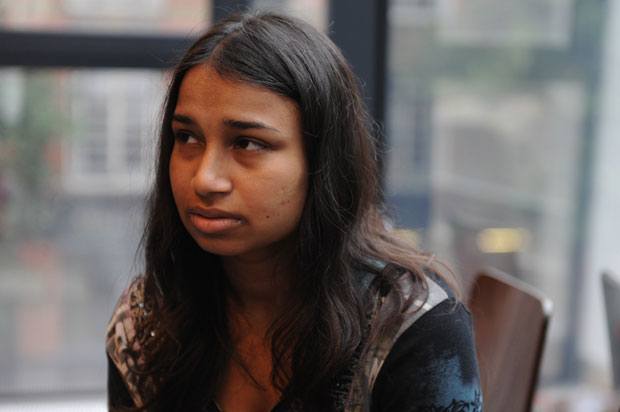Treatment for eating disorders
If you've decided you want help for your eating disorder, here's what to expect from the different types of treatment available.

The hardest part of treating an eating disorder is admitting you need help in the first place. So if you’re reading this, well done. You’ve taken the first, most challenging, step towards a healthier, happier you.
Going to your GP about an eating disorder
We know it’s scary, but going to your GP is the first point of call, as they can refer you to the services you need.
What will happen at the appointment?
Initially, it’s just a chat about your eating habits and worries. They will want to weigh you and possibly take a blood test so they can monitor your overall health. Once they have the test results and have heard your symptoms, they may diagnose an eating disorder. They should suggest some kind of therapy, counselling or other emotional support to help you with how you’re feeling.
I’m scared about going to the doctor
It’s normal to find it daunting, but there are a few things you can do to make it easier.
- Book a double appointment so you have enough time to say everything you want to without feeling rushed
- Write down what you want to say. That way, if you choke up, or forget something, you’ve got it there to prompt you
- If you’ve had trouble getting good treatment from your doctor before check out our advice from other young people who’ve been in the same situation
Being referred to a psychiatrist or counselling
Your doctor may decide to refer you for psychiatric help, counselling or to see a dietician or nurse to help with food and your weight. If you’re under 18, they may refer you to CAMHS (Child and Adolescent Mental Health Services). This is nothing to be ashamed of – your illness isn’t anything you can help, and these are the best people to help you recover.
What will the treatment be like?
Talking therapies are the most common and effective treatments. Professionals explore your thoughts and feelings with you and help you deal with any negative patterns in order to adapt your way of thinking and take back control of your thoughts.
These sessions can take the form of either counselling, CBT (Cognitive Behavioural Therapy), psychotherapy or even family therapy.
You may also be referred for dietary and nutrition advice but it’s important to remember that this isn’t the main focus of treatment for eating disorders as the idea is to take that focus away.
Talking treatments may sound intense and a bit scary but they’re super effective. Try and reach out for treatment as early as you can with your eating disorder as the earlier you start treatment, the more likely you are to achieve a positive outcome.
Can you get sectioned for having an eating disorder?
Most people willingly go to hospital if it’s recommended by a doctor. Sectioning someone is very serious and often only used in an emergency situation where you’re considered a real danger to yourself or others.
If your eating behaviour is a considerable risk to your health, and you won’t become an inpatient voluntarily, your health team can ask for you to be sectioned. However, this is very rare so don’t let it put you off seeking help. If you want to know more about sectioning read our article here.
What happens in hospital if you have an eating disorder?
Receiving treatment in hospital for an eating disorder is very rare and will only happen if you’re at risk of serious deterioration. If the doctor does not feel therapy or counselling alone will help you, you may be referred to a specialist setting. This could be a hospital, an eating disorder unit or a mental health unit. You’ll be given an individual care plan.
Day patients
You mostly won’t need to stay overnight and will visit the hospital during the day. While you’re there you’ll have supported meals, sessions of therapy and group activities.
Usually it takes between three to six months of treatment as a day patient before you’ll be ready to be an out-patient. If your eating gets worse in hospital, you may be asked to become an inpatient.
Inpatients
You’ll stay overnight and receive intensive treatment that includes supported snacks and meals, nutrition classes, art and music therapies and regular therapy sessions.
You’ll be allowed visitors at certain times and can personalise your room by bringing in stuff from home. If you’re still at school and college (and feel well enough to work) homework can be sent to you so you can keep up with your studies.
Next Steps
- Beat help people overcome eating disorders through helplines, online support and self-help groups. Call 0808 801 0677 or, if you're under 18, call their Youthline on 0808 801 0711.
- Men get eating disorders too (MGEDT) run discussion boards for men with eating disorders where you can get peer support.
- Chat about this subject on our Discussion Boards.
By
Updated on 05-Jul-2016
No featured article










